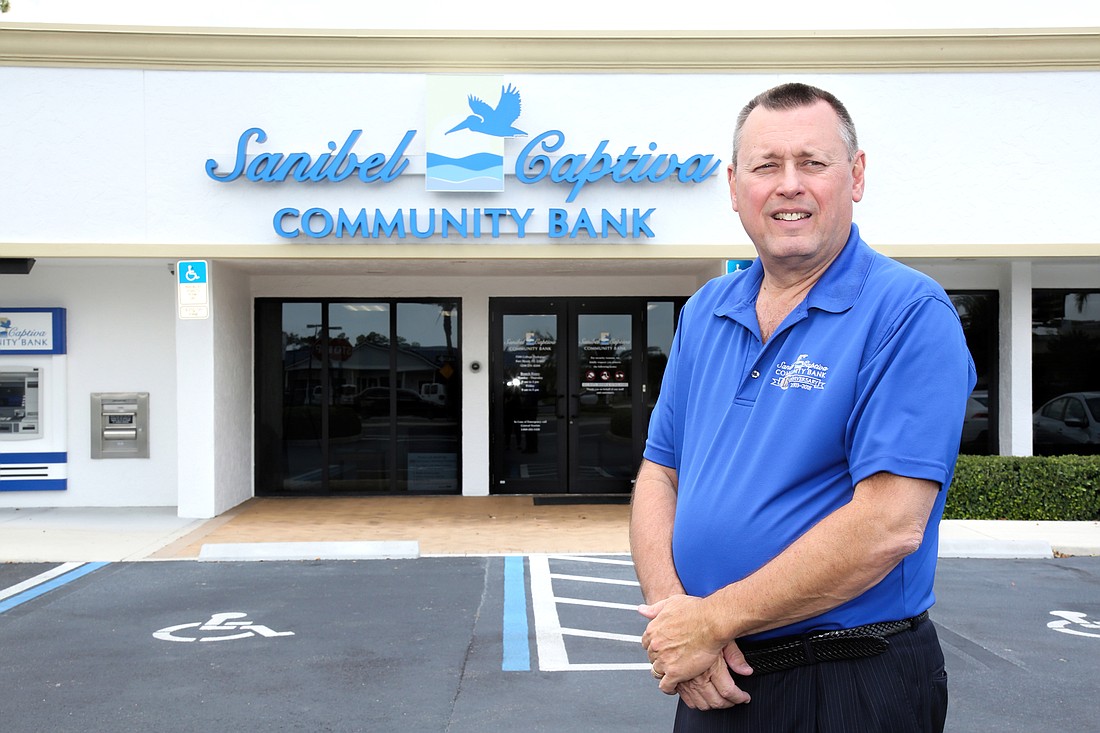- December 22, 2024
-
-
Loading

Loading

Happy employees make better employees. That’s the philosophy at Sanibel Captiva Community Bank, where making smart hires and retaining top talent is a priority — a particularly relevant part of the bank’s strategy given the rapidly consolidating market.
The bank, with $415 million in assets through March 31, must be doing something right: in 2017 only one employee left the company — to become a Navy Seal.
“You just can’t put a value on someone who really looks forward to coming into work every day and enjoys doing their job,” says David Hall, the bank’s executive vice president and chief operating officer.
Like many companies, referrals and networking play a big part in finding the right people. Many hires have worked with current bank employees in the past.
Referrals also come from other banks in the area. Sanibel Captiva Community Bank —with almost 90 total employees — has a few recent hires who came from banks where they were going to be losing their jobs due to a merger or acquisition.
Because most hires already have a stamp of approval from someone the bank trusts, they tend to have the soft skills needed to adapt to the organization’s corporate culture. “One thing we’re just really careful with is making sure it’s the right fit for the person to come work here, not only for them but for us as well,” says Hall.
It’s made clear during the interview process the way things are done at Sanibel Captiva, especially in teamwork. That helps employees’ transition from other banks or organizations easier. “We try to talk with them about how we’re a little bit different,” says Hall. “We all pitch in to help. Our president has been known to sit and answer the phones if the receptionist is busy.”
The bank is patient when hiring, to avoid mistakes. “We’ll wait till the right person comes along,” Hall says, “which sometimes takes a couple of months.”
‘We all pitch in to help. Our president has been known to sit and answer the phones if the receptionist is busy.’ David Hall, Sanibel Captiva Community Ban
That policy, of course, runs the risk of missing out on potential business. Hall says so far, even with low unemployment rates, the tight job market has had minimal impact on the bank and its ability to grow. “It might mean someone is going to have to pull a little bit of extra effort someplace, but we’re all willing to do that to get that right person in,” he adds.
The reputation the bank has developed, says Hall, makes it easy to compete with other banks who might be going after the same hires. “People reach out to us that they’d like to come on board — that’s the norm for us,” he says. “If you do it right, people find out about it.” The bank assesses all unsolicited resumes and keeps in touch with good candidates if there are no positions available.
But making smart hires is only one part of the equation. The bank also gives them reason to stay. A strong benefits package helps. The bank pays 100% for all medical insurance for employees and 50% of insurance costs for employees’ dependents. It matches 401(k) contributions up to 6% and offers flexible hours for employees and the ability to work from home when applicable.
Hall says that matches or beats the kinds of benefits offered by big national banks, who often have to take a cost-conscious approach that leads to standardization. “No one has ever come here and said I can’t take that job because you don’t pay enough of the medical costs,” he says.
Another key retention policy: autonomy.
“We don’t micromanage,” Hall says. “We have our policies and procedures people are expected to follow. But we let them make decisions and feel a part of the organization. We don’t second guess them. The employees really respond well to that. If every time you come up with an idea it gets shot down, after a while you stop coming up with ideas and you don’t really want to be part of the organization.”